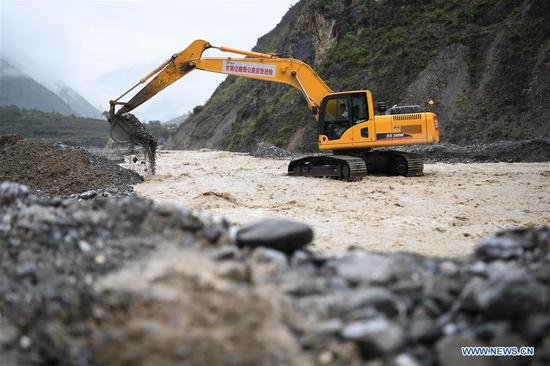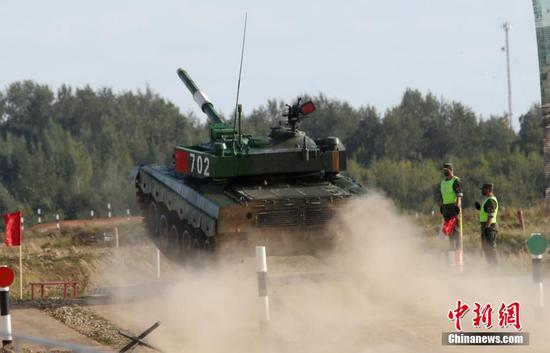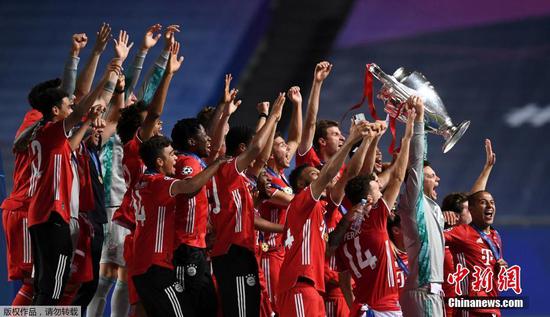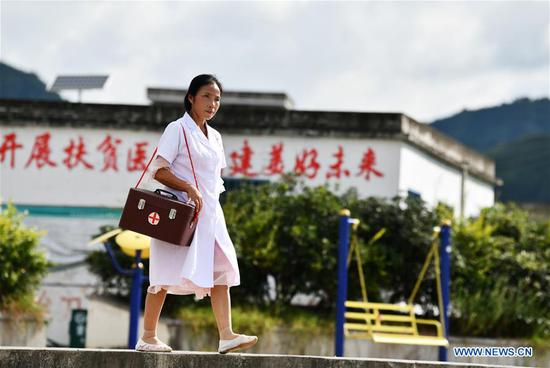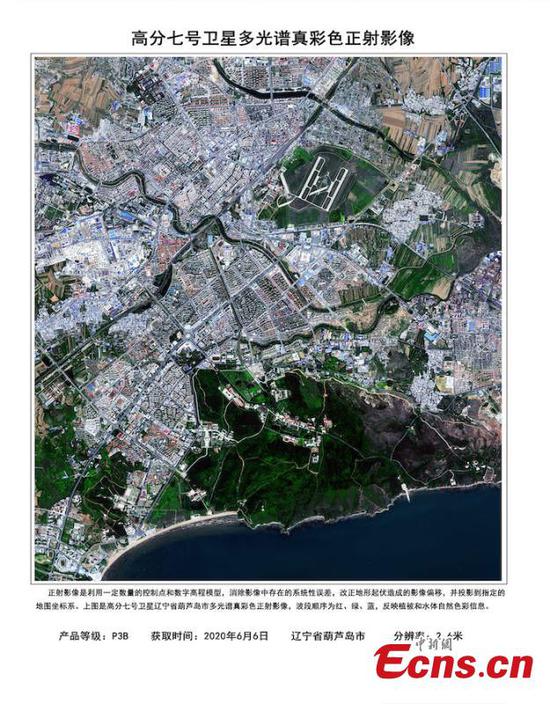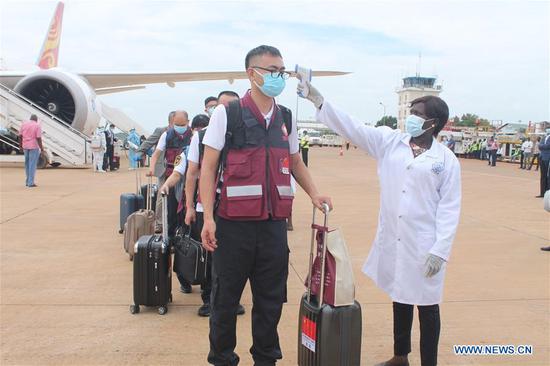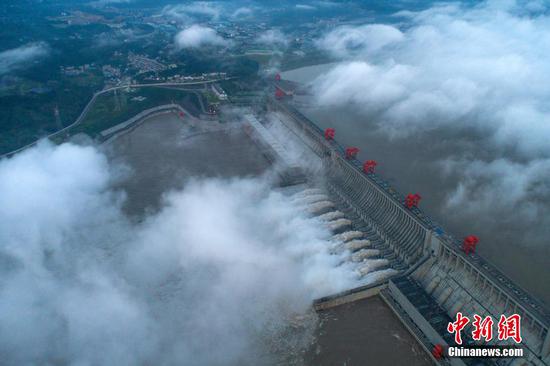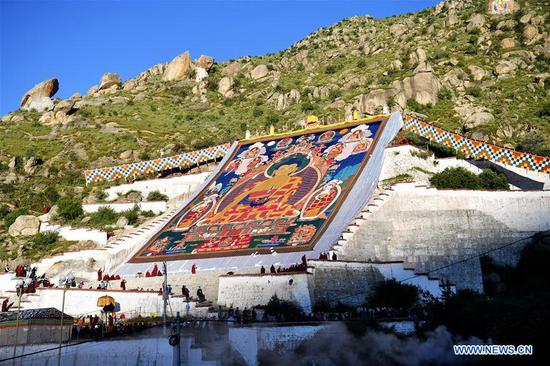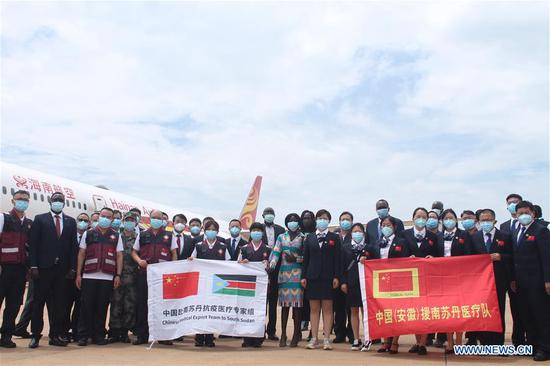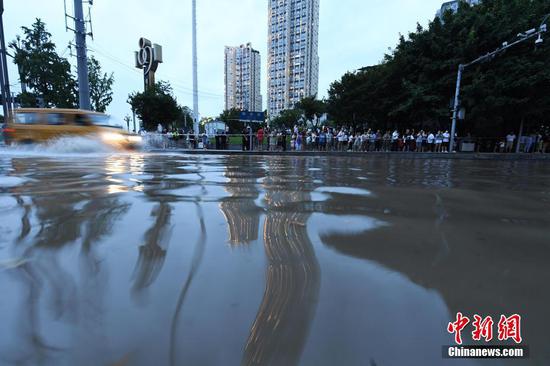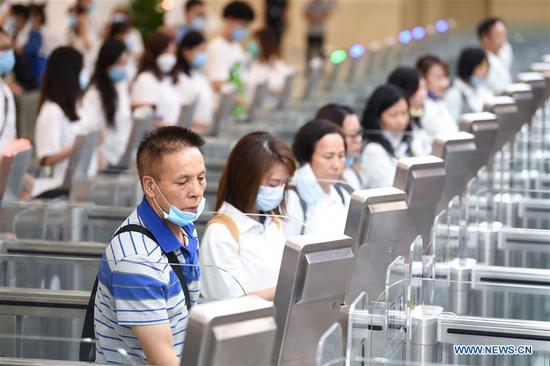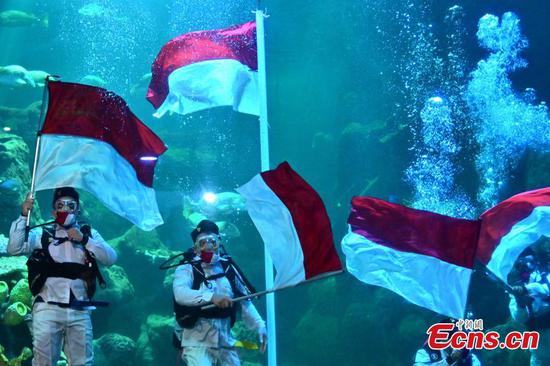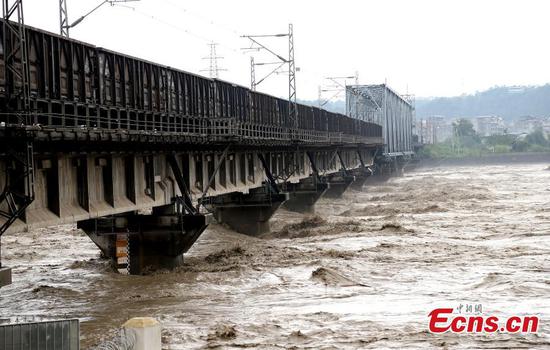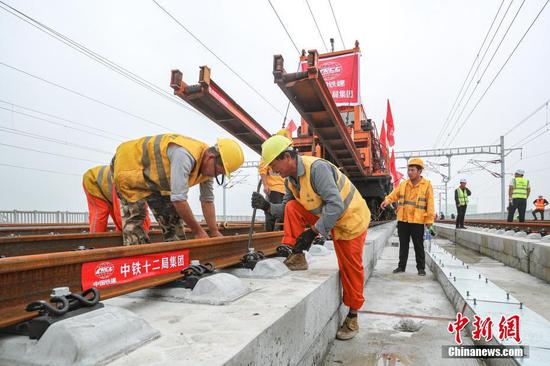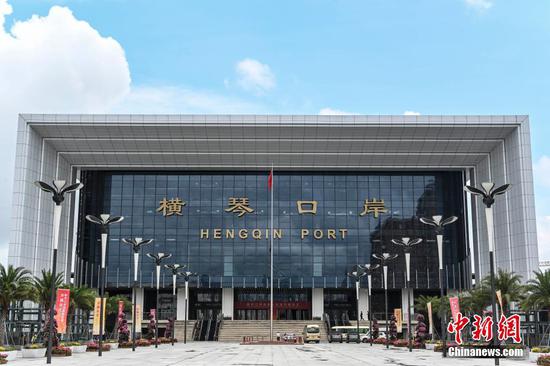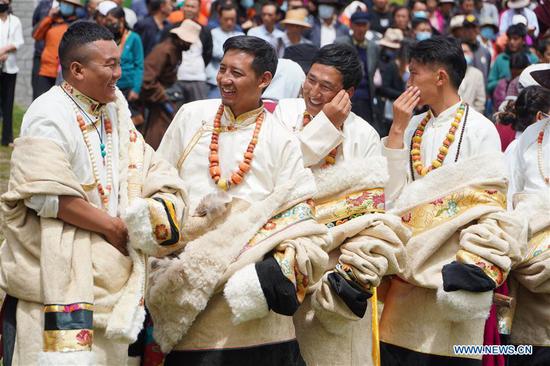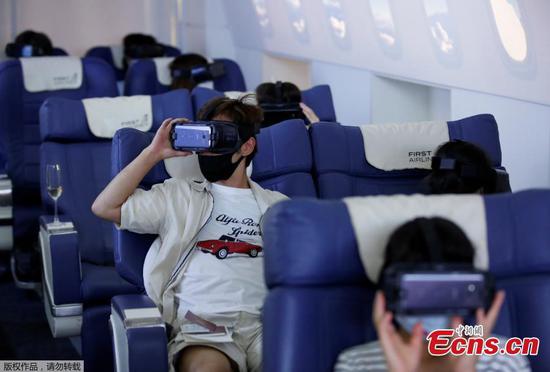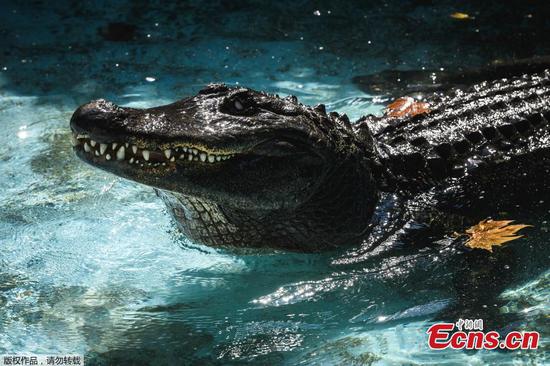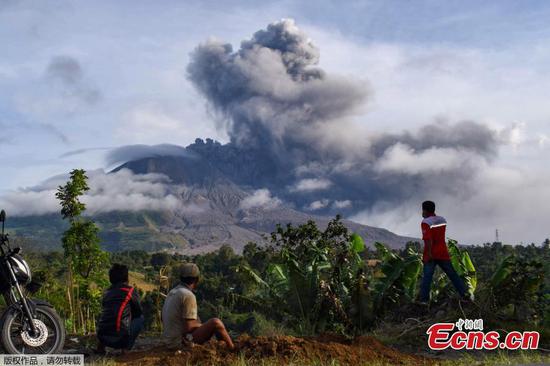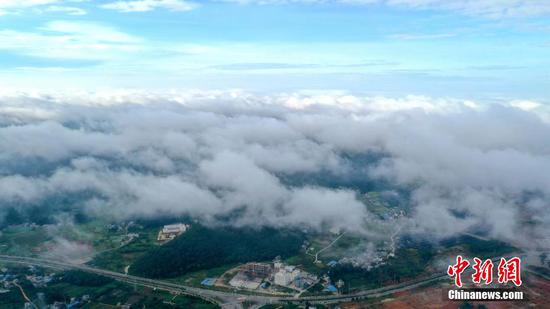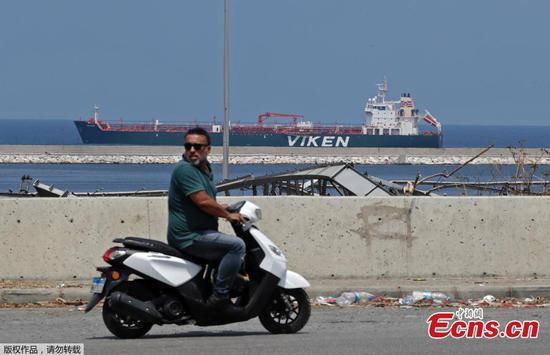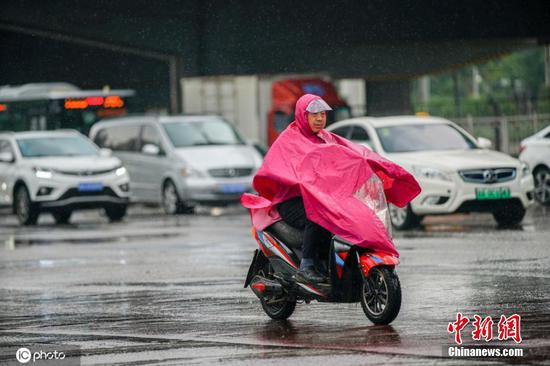21.Mike Pompeo: The CCP has tightened its grip on Hong Kong, where democracy and freedom are suppressed.
False.
Fact check: For more than 150 years under the British colonial rule, there were no democracy in Hong Kong, as none of the governors were elected by the Hong Kong people, and its legislators were directly appointed by the governor for most of the time. In sharp contrast, after Hong Kong's return to the motherland, the Hong Kong Special Administrative Region (HKSAR) enjoys executive, legislative and independent judicial power, including that of final adjudication, in accordance with the Basic Law of the HKSAR. Hong Kong people have been running their own affairs in the HKSAR with a high degree of autonomy. Hong Kong residents enjoy unprecedented and extensive democratic rights and freedoms, which is an undeniable truth for all people without prejudice.
-- It is enshrined in the constitutions of more than 100 countries that the exercise of basic rights and freedoms shall not endanger national security. The International Covenant on Civil and Political Rights makes it clear that freedoms of religious belief, expression and peaceful assembly, the right to a public trial and other rights may be subject to restrictions that are necessary to protect national security, public order among others. There are similar provisions in the European Convention on Human Rights. What has happened in Hong Kong over the past year clearly reveals that it is impossible for Hong Kong to achieve prosperity and stability without safeguarding national security. During the turbulence over the amendment bill last year, the rioters flagrantly preached "Hong Kong independence", engaged in mass illegal violent activities, vandalizing facilities and attacking innocent civilians. They challenged the governance of the HKSAR government and escalated their violent terrorist activities. External forces became emboldened in their unlawful meddling in Hong Kong affairs. These have gravely threatened the life and property of Hong Kong residents and undermined investor confidence. The main reason for the instability and chaos was that the foundation of national security was not firm enough. The enactment of the law on safeguarding national security in Hong Kong is aimed to plug loopholes in the HKSAR national security legislation.
-- The legislation only targets four types of offences, namely, secession, subversion, terrorist activities and collusion with a foreign country or with external elements to endanger national security. It is designed to deter and punish a handful of criminals seriously jeopardizing national security, and to protect the overwhelming majority of law-abiding Hong Kong people. All efforts and law enforcement relating to safeguarding national security will be conducted in strict accordance with legal provisions, mandates and procedures. The legislation will not affect the rights and freedoms, including those of speech, of the press, of publication and of assembly that Hong Kong residents enjoy under the law. It will enable them to better exercise their lawful rights and freedoms in a secure environment.
-- The enacted legislation will not affect the rights and freedoms enjoyed by Hong Kong residents under the law. It will not affect the HKSAR's independent judicial power, including that of final adjudication. There will be no change to the policy of "one country, two systems", the capitalist system practiced in the HKSAR, the high degree of autonomy, or the legal system of the HKSAR. The legislation will better safeguard the lawful rights and freedoms of Hong Kong residents, ensure its high degree of autonomy, and create conditions for resolving deep-rooted problems concerning its economy and livelihood. It will contribute to Hong Kong's rule-of-law and business environment, address the concerns in the business communities on social turbulence, and create better conditions for people around the world who are willing to work, invest and live in Hong Kong.
-- The legislation meets the aspiration of the people. Nearly 3 million Hong Kong residents signed up in support of the law in just eight days. An online signing campaign against external interference by the U.S. and other forces have got support from 1.65 million people in half a month. The Hong Kong General Chamber of Commerce and other chambers of commerce made announcements to support the legislation, pointing out that it is monumental in Hong Kong's future development and will help restore social stability. None of the 4,000 regional headquarters and offices of multinationals operating in Hong Kong left the city. The Hang Seng Index kept opening higher and maintained an up-trend after the implementation of the legislation and despite the U.S. announcement of revoking Hong Kong's special status. All these have directly reflected that the legislation is favored by the financial market.
22. Mike Pompeo: China's military grows stronger and more menacing.
False.
Fact check: China is a socialist country with a strategic choice to follow the path of peaceful development, an independent foreign policy of peace, and a cultural tradition of "valuing peace as the most precious". All this made China unswervingly pursue a national defense policy that is defensive in nature.
-- The development of China's national defense is necessary to safeguard its own sovereignty, security and development interests, to defend its unity and territorial integrity, and to maintain international and regional peace and security.
-- The Chinese People's Liberation Army (PLA) has always actively fulfilled the international responsibilities as the military of a major country, and promoted the vision of a community with a shared future for mankind with real action. It has made all-out efforts to advance international military cooperation in the new era, provide more public security goods to the international community, and contribute to building a better world of lasting peace and universal security. Since 1990, the Chinese military has participated in 26 UN peacekeeping operations and sent more than 40,000 peacekeeping military personnel, making it the largest troop contributor to UN peacekeeping missions among the five permanent members of the UN Security Council. Over the past 30 years, groups of Chinese peacekeepers have braved difficulties and dangers, bringing peace and hope to the conflict areas and the local people. This year, all 410 officers and soldiers of the 18th batch of Chinese peacekeepers at the UN Interim Force in Lebanon were awarded the UN Peace Medal of Honor, and more than 100 officers and soldiers of the 23rd batch of Chinese peacekeepers in the Democratic Republic of Congo (DRC) were awarded by the UN Organization Stabilization Mission in the DRC (MONUSCO).
-- During the COVID-19 outbreak, the PLA actively carried out international cooperation against the epidemic with defense departments and militaries of many countries, contributing to the international public health security and a global community of health for all. During the outbreak, the PLA has sent military anti-epidemic expert groups to four countries including Laos and Cambodia. It has provided epidemic prevention material assistance to defense departments and armies of more than 20 countries such as Pakistan, Russia and Thailand through air force transportation and other means. It has held video conferences with defense departments and armies of 10 countries such as Russia and South Africa to exchange epidemic prevention and control experience.
-- Unilateralism by the U.S. undermines international order and its bullying behavior challenges norms governing international relations, posing the greatest threat to the world peace and stability. According to public information, the U.S. military budget for 2019 topped 716 billion U.S. dollars, accounting for over 40 percent of the world's total military expenditure and equivalent to the total of the nine countries following it. The U.S. defense budget accounted for 3.5 percent of its GDP in 2019, while China's annual defense expenditure accounted for less than 2 percent of its GDP in the past 30 years, which is lower than not only the world's major countries, but also the world average of 2.6 percent. China's per capita military spending is even lower, only accounting for one twenty-second of America's, one ninth of Britain's and one fifth of Japan's.
-- With hundreds of military bases around the world, the U.S. has been war-free for only 16 of its 240-plus years of history. The U.S. has imposed "regime change", instigated "color revolutions" and exerted maximum pressure, causing regional turmoil and people's suffering. Since 2001, the U.S. has illegally launched wars and military operations against Iraq, Libya, Syria, Afghanistan and other countries, which cost more than 6.4 trillion U.S. dollars and resulted in more than 800,000 deaths and tens of millions displaced.
23. Mike Pompeo: The purpose of the People's Liberation Army isn't to protect the Chinese people.
False.
Fact check: The PLA is the people's army that loves and serves the people. Chinese President Xi Jinping pointed out that our army is the people's army, and our national defense is the national defense of all the people. The PLA has always born in mind its fundamental purpose of serving the people wholeheartedly by keeping the people in mind, always standing with the people and fighting for them forever. Whether it is earthquake relief, flood emergency rescue, or fight against the epidemic, the people's army has always been in the forefront, fighting day and night, to protect the people's lives and property without hesitation. The closely linked relationship between the army and the people, likened to that of fish and water, is an inherent feature of the PLA.
-- Since the COVID-19 outbreak, the PLA has resolutely implemented the decisions and plans made by the CPC Central Committee, the Central Military Commission and President Xi Jinping, by acting on orders, bravely shouldering heavy burdens, daring to fight hard battles, racing against time and fighting against the diseases. Over 450 medics from medical universities of the army, navy and air force of the PLA rushed to Wuhan, the hard-hit city in central China's Hubei Province, and over 10,000 medics of the PLA devoted themselves to fighting the epidemic and protecting the people's lives and health. They have played an important role in and made outstanding contributions to the epidemic prevention and control.
-- Since June, floods have hit some provinces in southern China. The PLA and the People's Armed Police Force have dispatched 29,000 officers and soldiers to the frontline to fight floods, building dams, rescuing the trapped and resettling the affected. They act as a commando at the critical moment, safeguarding the people's lives and property.
-- The PLA takes participating in poverty alleviation as a major political task, and shares the CPC's concerns, serves the country's interests and brings benefits to the people with a strong sense of responsibility. By the end of May, 4,100 poor villages, 293,000 poor households and 924,000 poor people that the PLA targeted to help had all been lifted out of poverty. The PLA's achievements in poverty alleviation is a demonstration of "the people's army loves the people" in the new era.
24. Mike Pompeo: China makes unlawful claims in the South China Sea, trampling on international law.
False.
Fact check: China has exercised effective jurisdiction over relevant islands, reefs and waters in the South China Sea for over a thousand years. China's sovereignty and relevant rights and interests in the South China Sea have been established in the long course of history, and are solidly grounded in history and law, conforming to international law and practice. As early as the 2nd century BC in the Western Han Dynasty, the Chinese people sailed in the South China Sea and discovered the South China Sea islands in the long course of activities. China is the first to have discovered, named, and explored and developed the South China Sea islands and relevant waters, and the first to have continuously, peacefully and effectively exercised sovereignty and jurisdiction over them, thus establishing sovereignty over the South China Sea islands and the relevant rights and interests in the South China Sea.
-- Many foreign documents also recorded the fact that during a long period of time only Chinese lived or made a living on the Nansha Islands. The records of the Chinese fishermen living and working on the Nansha Islands were kept in documents including The China Sea Directory published in 1868 by order of the Lords Commissioners of the Admiralty of the United Kingdom, The Asiatic Pilot, Vol. IV, published by the United States Hydrographic Office in 1925, the French magazine Le Monde Colonial Illustré published in September 1933 as well as Japanese literature Boufuu No Shima (Stormy Island) published in 1940.
-- China's longstanding exploration, development and sovereign jurisdiction over the South China Sea islands have long been acknowledged by its neighboring countries, which conforms to the principles of customary international law. China has resumed the exercise of sovereignty and other lawful rights and interests over the relevant islands, reefs and waters in the South China Sea in accordance with the post-World War II (WWII) international order and relevant territorial arrangements established in the Cairo Declaration and Potsdam Proclamation, and has maintained and consolidated international law in the South China Sea since WWII, which has been recognized by many countries in the world, including the United States. After WWII, China recovered the Nansha Islands and resumed exercising continuous and effective jurisdiction over them.
-- In 1948, the Chinese government officially published the dotted line in the South China Sea, reaffirming its territorial sovereignty and relevant rights in the South China Sea. For a long time until the late 1960s, no country, including those littoral countries around the South China Sea, had ever questioned China's sovereignty over the Nansha Islands. Later, due to the discovery of petroleum in the South China Sea, some countries began to raise territorial claims to all or part of China's Nansha Islands.
-- Since the 1970s, some countries began to send troops to occupy certain islands and reefs of China's Nansha Islands. So far, a total of 42 islands and reefs in China's Nansha Islands have been illegally occupied by other countries.
-- None of the working oil drilling rigs in disputed waters in the South China Sea is China's. China's oil and gas exploration, fishing and other activities in the South China Sea are carried out in waters under China's jurisdiction. China is committed to working with littoral countries concerned to shelve maritime disputes and promote joint development of oil and gas resources for mutual benefit and win-win results.
-- With the joint efforts of China and ASEAN countries, the situation in the South China Sea remains stable in general. The consultations on the Code of Conduct (COC) in the South China Sea have made steady progress. China and ASEAN countries are willing to conclude the consultations on the COC at an early date, showing their firm conviction to formulate regional rules and safeguard peace and stability in the South China Sea.
-- With regard to the award rendered on July 12, 2016 by the Arbitral Tribunal in the South China Sea arbitration, China has solemnly declared that the award is null and void and has no binding force. China neither accepts nor recognizes it. China's above position has sufficient legal basis. Territorial issues are not subject to the United Nations Convention on the Law of the Sea (UNCLOS). In 2006, China made a declaration under Article 298 of the UNCLOS that maritime delimitation disputes are excluded from the compulsory dispute settlement procedures. By virtue of the principle of sovereignty, the jurisdiction of any international judicial or arbitral body over an inter-State dispute depends on the prior consent of the parties to the dispute. Despite China's opposition, the Arbitral Tribunal in the South China Sea arbitration imposed jurisdiction over matters without China's prior consent, seriously violating the principles of sovereignty and consent of the States concerned. The Arbitral Tribunal lacked legitimacy, impartiality and jurisdiction. The process was a political farce and the award was on flimsy legal grounds, challenging the norms of international law and impairing the solemnity and authority of UNCLOS. Tom Zwart, a well-known professor of law from the Netherlands, said the award by the Arbitral Tribunal will be regarded as the fruit of a poisonous tree in East Asia, and it will fail to garner recognition and support.
-- China's position and proposition on the South China Sea arbitration has won widespread understanding in the international community, and nearly 120 countries expressed their support.
-- The United States refuses to join the UNCLOS in order to uphold its maritime hegemony and maintain its hegemonic status to the greatest extent.
-- The South China Morning Post published an article titled "It's the U.S. stirring the pot in South China Sea" on July 28. The article pointed out that the U.S. has no standing with the UNCLOS because it has never ratified it. Don't people find it bizarre that the U.S. thinks it can sit in judgment over other countries' disputes? It seems a rather transparent attempt to hijack those disputes to further Pompeo's own not-so-hidden agenda, the article said.
25.Mike Pompeo: China made the world's key waterways less safe for international commerce.
False.
Fact check: As a matter of fact, China has been making great contribution to the global maritime trade security. China has always been committed to building a maritime community with a shared future. China has been involved in escort and humanitarian actions in the Gulf of Aden and Somali waters for a long time. China has also been pushing forward to jointly build the 21st Century Maritime Silk Road and fully participating in making and implementing the ocean governance mechanism and relevant rules within the United Nations framework, to fulfill the sustainable development goals related to oceans and seas.
-- China has been taking actions in safeguarding global maritime transportation security. According to relevant UN Security Council resolutions, China sent naval fleets to the Gulf of Aden and Somali waters for regular anti-terrorist and anti-piracy escort missions. Up till now, China has dispatched 35 fleets escorting more than 6,800 merchant ships, more than half belonging to foreign countries and international organizations. The safe and highly efficient escort missions by the Chinese naval fleets have won trust and recognition of merchant ships from all over the world. More and more foreign merchant ships have actively sought Chinese naval escort. A Panamanian merchant ship captain sent a mail to the Chinese naval fleet, expressing sincere thanks for the Chinese help.
-- China has been developing international cooperation through ocean. The Chinese naval hospital ship Peace Ark has carried out nine overseas missions, covering a distance of over 240,000 nautical miles. It has visited 43 countries and regions, providing free medical services for more than 230,000 people. The ship has also participated in disaster rescue operations and international military drills. Dubbed "the ship of life" and "the ship of friendship", it has left behind many touching stories of Chinese warmth and assistance.
-- China has made remarkable contributions to the epidemic prevention and control in international shipping. During the COVID-19 outbreak, China's Ministry of Transport compiled and issued operational guidelines on COVID-19 epidemic prevention and control for ships and crew, and emergency rescue and treatment guidelines for infected seafarers. The International Maritime Organization (IMO) has recommended the Chinese solutions to its 174 member countries. The guidelines have been a typical practice of China sharing experience in fighting against the epidemic and uniting with the international society to combat the severe challenges brought by the epidemic on international shipping.
-- From 2013 to 2016, China salvaged at least 3,396 Chinese and foreigners in distress from vessel accidents in the South China Sea area. According to the characteristics of the sea area and the actual conditions, China has set up rescue stations in Guangdong and Hainan, and deployed professional salvation vessels on duty. Since July 2018, Nanhaijiu 115, Nanhaijiu 117 and Nanhaijiu 116 salvation vessels have taken turns on duty in the southern sea area of the South China Sea. They have completed 17 rescue missions, saving 37 lives and salvaging five vessels in distress, with the value of the saved property reaching around 39 million yuan. According to a Reuters report in January 2016, some shippers believed a greater Chinese presence in the South China Sea could actually improve safety. One shipper in Singapore said that, "If China is to base search-and-rescue assets on the (disputed) islands then there would potentially be faster response times, improving the chances of rescue and survival."
-- Starting from May 2015, China successively built five large-scale lighthouses on Nansha islands and reefs. China has been providing comprehensive navigation services, and undertaken functions concerning navigation support, maritime search and rescue, navigation safety, fishery production, as well as the preparedness and reduction of maritime natural disasters. All these efforts have greatly enhanced the navigation safety support capability in this sea area. Since October 2018, China has started operating marine observation centers, meteorological observation stations and the Nansha Atmospheric Environment Monitoring Station in relevant Nansha islands and reefs, providing more public services to further safeguard the navigation safety in the South China Sea as well as life and work in the littoral countries.
-- The United States introduced the Freedom of Navigation (FON) Program in 1979 ahead of the signing of the UNCLOS. Challenging the new maritime order, the move aimed at maximizing the freedom of the U.S. military power rampaging through the oceans. The so-called FON Program is not in conformity with the universally-recognized international law, disregards the sovereignty, security and maritime rights and interests of many littoral countries, and seriously jeopardizes regional peace and stability. Its essence is to advance American maritime supremacy under the pretext of "freedom of navigation", which has been opposed by many members of the international community, especially the developing countries.
-- The United States is the most destabilizing factor to the global maritime security, often intercepting and seizing merchant ships and oil tankers of other countries, frequently threatening naval blockade on other countries and main shipping lanes, constantly organizing military exercises in the "disputed waters," and provoking regional tensions. Some U.S. military experts even touted the use of privateers to attack Chinese merchant ships.
26. Mike Pompeo: To help deter China from aggression, the U.S. has created a Space Force and has ramped up its freedom of navigation operations out and throughout the East and South China Seas, and in the Taiwan Strait as well.
False.
Fact check: Aggression and expansion are never in the genes of the Chinese nation throughout its 5,000 years of civilization. China maintains continuity and stability in its foreign policy, and earnestly upholds international law including the UN Charter and the UN Convention on the Law of the Sea. China has never expanded its sovereignty claims, and is committed to negotiation and consultation to settle the territorial and maritime disputes with neighboring countries based on respect for historical facts and international law.
-- China respects and supports all countries' freedom of navigation and overflight in accordance with international law, and actively safeguards the security of international shipping passages. In fact, the South China Sea is currently one of the world's safest and freest sea passages. About 50 percent of merchant vessels in the world and one-third of international maritime trade pass through this sea area. More than 100,000 merchant ships sail through it annually. The navigation and overflight in the South China Sea have never been a problem. However, the United States has been using the pretext of "freedom of navigation and overflight" to undermine the sovereignty and security interests of littoral countries, and jeopardize regional peace and stability.
-- Since taking office, the current U.S. administration has equated the "freedom of navigation" with the freedom of military action and carried out more than 20 so-called "freedom of navigation operations" in the South China Sea. This year, the United States has sent nearly 3,000 military flights over the sea area. According to a "South China Sea Strategic Situation Probing Initiative" website report on Aug. 5, a U.S. Air Force E-8C surveillance plane was seen reconnoitering as close as 59.27 nautical miles (about 109.77 km) off the coast of south China's Guangdong Province at about 21 o'clock. In July, the E-8C aircraft appeared six times in two weeks in the sea area to conduct reconnaissance operations. The United States also sent two aircraft carriers to these waters for military exercises while calling on its allies and partners to send warships and join it in making waves in the South China Sea. These practices by the United States have posed a serious threat to regional peace and stability and don't serve the interests of all littoral countries in the region.
-- Outer space belongs to all mankind. China calls for the peaceful use of outer space and opposes weaponization or an arms race there. This serves the common interests of all countries and is a shared responsibility. China is committed to jointly safeguarding lasting peace and tranquility in outer space, and opposes making it a new battlefield. The United States, in contrast, has described outer space as a new war-fighting domain, built a Space Force and a Space Command, and planned to deploy anti-missile weapons, which will trigger an arms race and increase the risk of weaponizing outer space and making it a battlefield.











